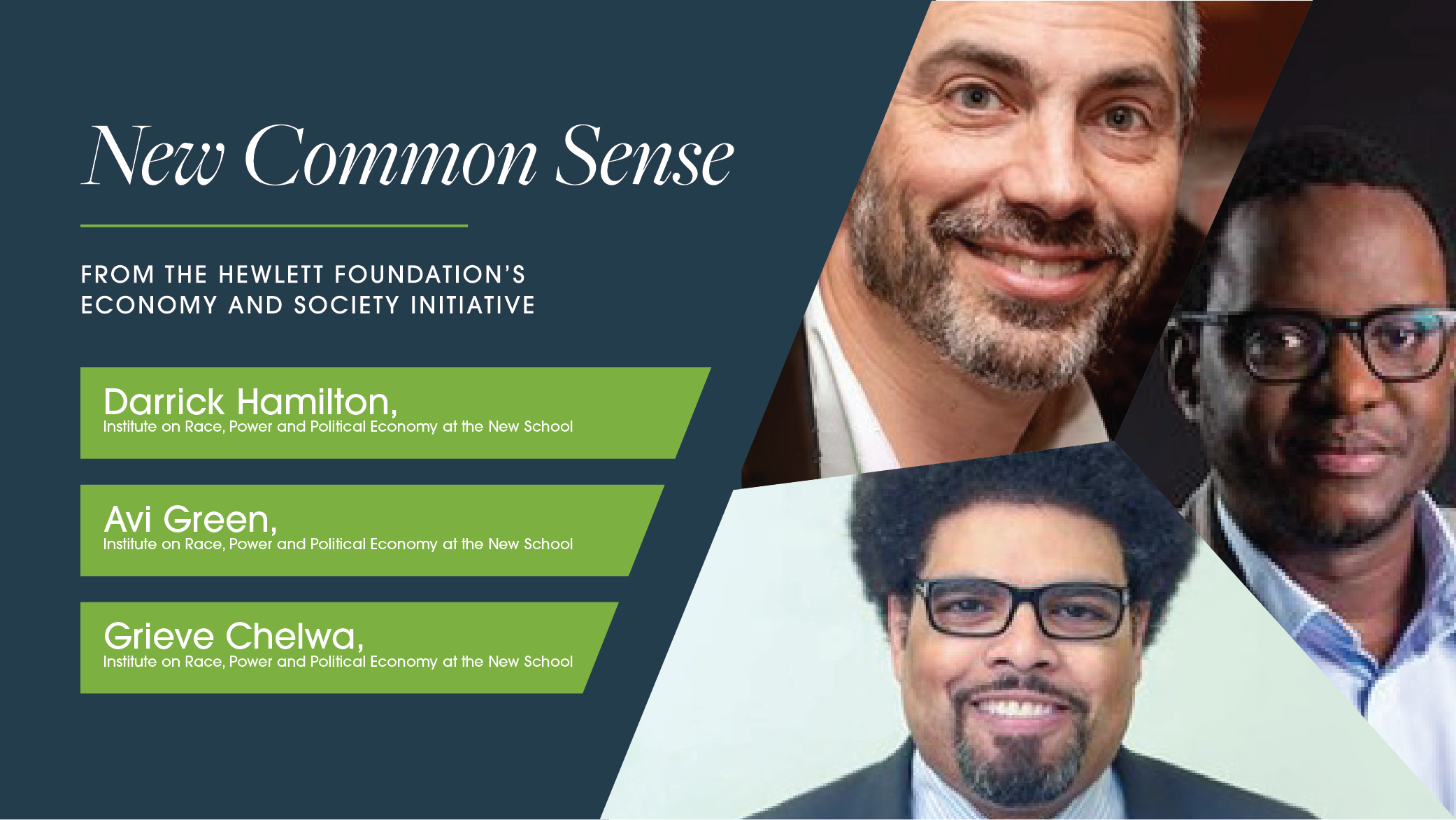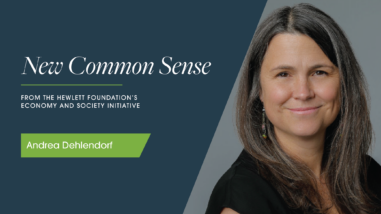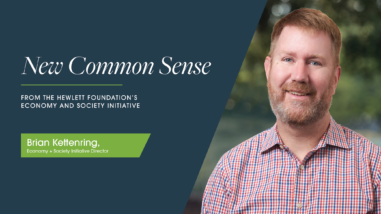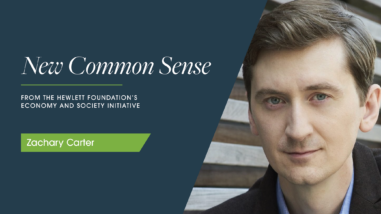A moral political economy that puts people above property

The neoliberal movement was fueled, in part, by the rhetoric of freedom, choice, and a specific notion of rights — not the economic rights of people, but the economic rights of property. This emphasis on property rights is devoid of an honest and sobering historical discourse on the immoral practices by which that property had come to be distributed in the first place. In essence, the state serves to codify, secure, and protect accrued property, when its fiduciary responsibility should be to serve its people. In fact, there was an explicit turn away from economic rights for people.
The neoliberal political-economic revolution ratcheted up in the early-to-mid 1970s. The emergent consensus, driven by economists, was that “markets” and “marketized” solutions are what is best for our economy and distributional sorting. Based on rugged individualism, personal responsibility, and laissez-faire economics, neoliberalism presents market allocations as an ideal solution to all of our social problems, economic or otherwise. The seductive allegory of the market is that through hard work and ingenuity, the market can facilitate the proverbial “rags to riches” story for anyone.
Absent from the neoliberal worldview is the role of power and capital, and how the wealthy and powerful are able to alter the rules and structure of transactions — and markets — in the first place. And it is this absence that most needs correcting, through the adoption of a moral political economy that addresses the problems inherent in the neoliberal economic model.
Contrary to the claims of neoliberalism, its rhetoric of freedom and choice, presented without adequate understanding of power, capital, and initial endowments, perpetuates an illusion. It naturalizes poverty and inequality, instead of grounding them as the results of government actions or inactions that leaves those without resources and power subject to the whims of charity, or vulnerable to exploitation and predation by those with power and resources in a proverbial market.
Neoliberalism’s failures are particularly egregious in its blindness to race, gender, and other identity group stratifications. Moreover, it is naïve to not recognize the inseparable role of race (or, more broadly, identity group stratification) in defining economic and political paradigms. For instance, we assert that virtually every policy in the U.S. is racialized in some way — from the institutionalization of slavery itself to last December’s expiration of the expanded child tax credit that will disproportionately consign Black and Latinx children into poverty. The impact of this racialization is by no means limited to Black and Latinx people. Ignorance of past and existing racial hierarchy under the guise of forward-looking race neutrality is what Eduardo Bonilla-Silva accurately describes as “color-blind racism.”
Racialization and identity group stratification are not unique to the U.S. Throughout time and space, structures of power have demarcated subgroups of people in hierarchical ways that reverberate politically as to who is worthy of and entitled to receipt of public benefit.
At the Institute on Race, Power and Political Economy, we are developing a policy framework with interventions that promote equity and counterbalance unjust accrued economic hierarchy and racialized power. This framework calls for a set of economic policies that puts people above property. Such policies empower people with the resources and structures to thrive, while also protecting the environments on which people depend.
In contrast to neoliberalism, we call for a new kind of moral political economy that centers people; a political economy grounded in Inclusive Economic Rights. Our current economic system is undergirded by values of self-interest and limitless accumulation, and too often rewards and even requires exploitation. A truly moral economy would be undergirded by different values — values such as economic inclusion, civic engagement, social equity, human dignity, sustainability, and shared prosperity. And, far from denying the importance of race and other identity group stratifications, a moral political economy would put in place policies and structures to ensure that racial identity, and the accrued advantages associated with racial identity, retain no transactional value whatsoever in determining material outcomes.
Attaining this type of economy requires a change in economic and political norms. For instance, in the U.S. context, it necessitates that the dominant white group give up the benefits of white privilege — the material and psychological returns that come to white people simply for having a white identity.
Inclusive economic rights are anchored on the idea that there is a baseline set of enabling goods and services that are so critical for individual agency and self-determination that, in their absence, individuals have limited capacity to reap economic returns for their efforts and ingenuity. Contrary to the claims of neoliberal orthodox economics (but clear to all who approach the question with common sense), choice and freedom are highly limited for individuals who lack basic resources such as employment, adequate income, shelter, food, health care, or capital. In essence, rather than benefiting from markets, these individuals are at the whim of markets. To enable these individuals to participate in the economy and the body politic, and to promote human flourishing, we need public interventions to counterbalance accrued economic and racialized power.
Rather than naturalizing poverty and inequality as the result of unproductive and deficient behavior, inclusive economic rights locate poverty and inequity as structural outcomes that result from policy choices. In the neoliberal regime, policy choices — and the markets those policies have created — have not adequately provided people the resources they need to live long, healthy, meaningful lives, and have, instead, delivered harm to millions of people, especially people from subordinated groups. In the U.S., of course, the millions who are underserved by neoliberalism especially include people who are women, Black, Indigenous, or other people of color.
It’s time to reimagine a new, inclusive moral political economy grounded in shared prosperity.



